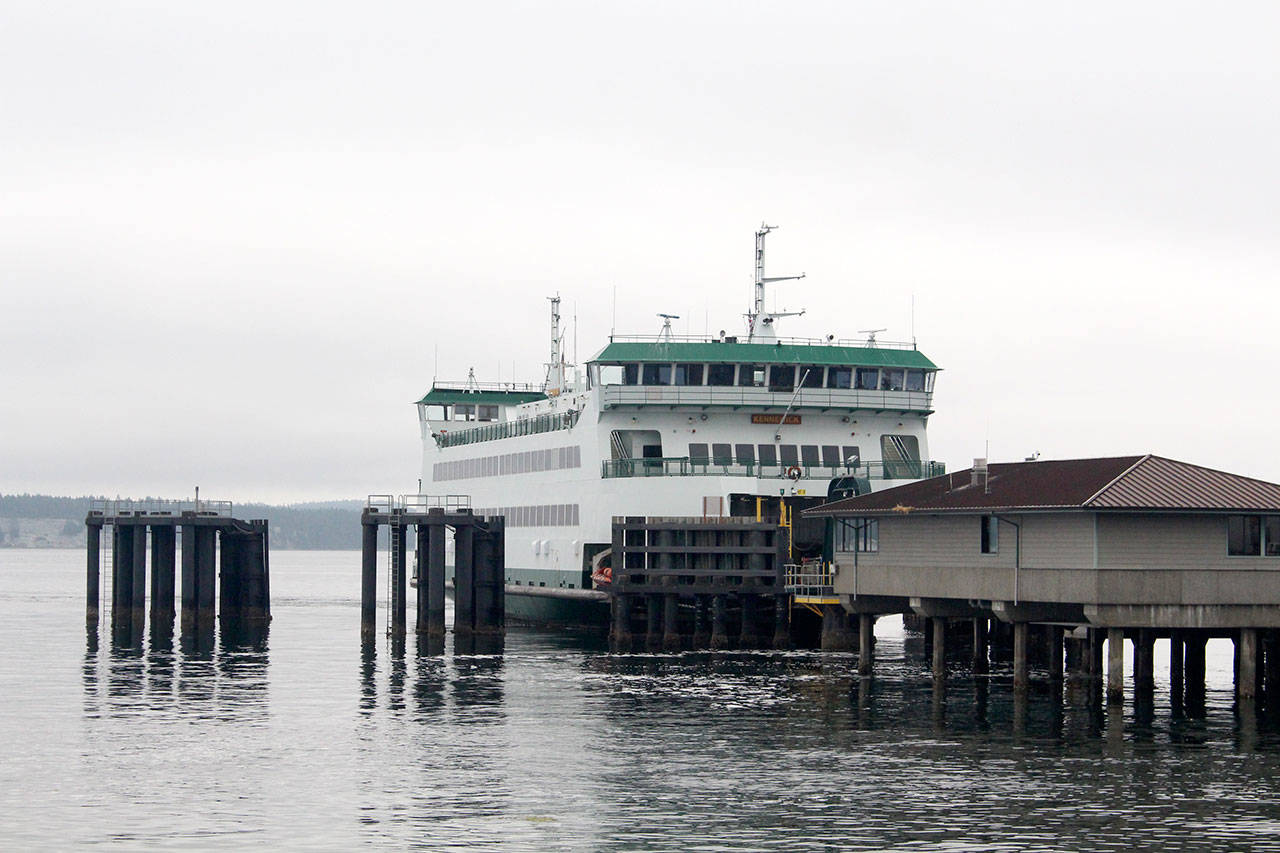OLYMPIA — State ferry fares will increase in the fall and then again the following spring.
The Washington State Transportation Commission approved the rate increase Tuesday, saying it is needed to meet the $407 million revenue requirement that the state Legislature passed in April.
The revenue Washington State Ferries receives from July 1, 2019, to June 30, 2021, must meet the $407 million requirement, as the state prepares to build new ferries for its runs.
The increases will apply to all state ferry runs, including on the Port Townsend-Coupeville route.
Starting Oct. 1, fare rates will increase by 2.5 percent for all vehicles, with an additional 5 percent increase for oversized vehicles on the Anacortes-Sidney route.
For example, the standard vehicle and driver rate for the Port Townsend-Coupeville route is $14.80 one-way, and after the increase it will be $15.17 one-way.
Passengers also will see a 2 percent increase in fares. For the Port Townsend-Coupeville route, this would raise the current regular walk-on/passenger fair from $3.45 to $3.52 one-way.
No-show fees for reservations will increase up to 100 percent of the one-way fare paid for a standard-sized vehicle.
Making transfers on the San Juan Islands’ Interisland ferry can happen at any time the same service day the transfer was issued.
Discussions with rider discussion boards about the changes started back in January, said Reema Griffith, transportation commission executive director.
Once the new law was in place, the commission moved forward with their plan with the required revenue now known, Griffith said.
The second increase will start May 1, which includes another 2.5 percent fare increase for all vehicles, an additional 5 percent fare increase for oversized vehicles on the Anacortes/Sidney B.C. route and a 2 percent fare increase for passengers.
The May changes also includes an additional 25-cent increase to the capitol surcharge that is already incorporated into all fares for the building of a new vessel, said Griffith.
That would make the Port Townsend-Coupeville route’s increased $15.17 fare go up to $15.80 for standard vehicle and driver one-way rate, and the $3.52 regular passenger fare to rise to $3.84 one-way.
In addition to the the fare increases, the transportation commission authorized two pilot programs.
A “Low Income Fare” pilot project would test the possibility of a lower passenger fare for low-income customers. For this test to become a reality, the program would need to have funds provided by the state Legislature to offset the lost revenue and a secondary approval would have to come from the commission. The earliest this program could begin would be 2020, and it would run for no more than three years.
A “Good to Go” pilot is in discussion, which would make use of the current “Good to Go” system that motorists already use on toll bridges and select highways. Separate fares may be established for these users, and like the other pilot, the approval of it is dependant upon another commission vote and the pilot would run for up to three years.
More information about the commission and the fare proposal can be found at www.wstc.wa.gov.
________
Jefferson County reporter Zach Jablonski can be reached at 360-385-2335, ext. 5 or at zjablonski@peninsuladailynews.com.

